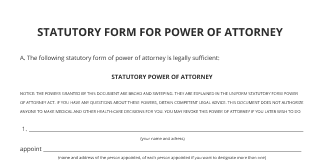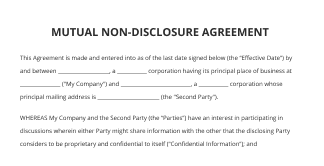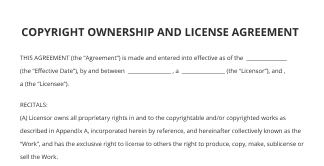Plantilla De Acuerdo De Liquidación De Deuda Fácil De Usar
Obtén las potentes capacidades de firma electrónica que necesitas de la empresa en la que confías
Selecciona el servicio profesional diseñado para profesionales
Configura la API de firma electrónica con facilidad
Trabaja mejor en equipo
Firma plantilla de acuerdo de liquidación de deuda en minutos
Reduce el tiempo de cierre
Mantén los datos sensibles seguros
Vea las firmas electrónicas de airSlate SignNow en acción
Soluciones de airSlate SignNow para una mayor eficiencia
Las reseñas de nuestros usuarios hablan por sí mismas






Por qué elegir airSlate SignNow
-
Prueba gratuita de 7 días. Elige el plan que necesitas y pruébalo sin riesgos.
-
Precios honestos para planes completos. airSlate SignNow ofrece planes de suscripción sin cargos adicionales ni tarifas ocultas al renovar.
-
Seguridad de nivel empresarial. airSlate SignNow te ayuda a cumplir con los estándares de seguridad globales.

Tu guía paso a paso — sign debt settlement agreement template
Al emplear la firma electrónica de airSlate SignNow, cualquier empresa puede aumentar los flujos de firma y firmar en línea en tiempo real, ofreciendo una experiencia mejorada a clientes y empleados. Usa la firma en la Plantilla de Acuerdo de Liquidación de Deuda en unos pocos pasos sencillos. Nuestras aplicaciones móviles permiten trabajar en movimiento, incluso sin conexión! Firma contratos desde cualquier lugar del mundo y cierra tratos más rápido.
Sigue la guía paso a paso para usar la Plantilla de Acuerdo de Liquidación de Deuda:
- Inicia sesión en tu cuenta de airSlate SignNow.
- Encuentra tu documento en tus carpetas o sube uno nuevo.
- Abre el documento y haz ediciones usando el menú Herramientas.
- Arrastra y suelta áreas rellenables, escribe texto y firma.
- Incluye múltiples firmantes usando sus correos electrónicos y establece el orden de firma.
- Indica qué usuarios recibirán un documento firmado.
- Usa Opciones avanzadas para restringir el acceso al documento y establecer una fecha de vencimiento.
- Haz clic en Guardar y cerrar cuando termines.
Además, hay más herramientas innovadoras disponibles para firmar la Plantilla de Acuerdo de Liquidación de Deuda. Agrega usuarios a tu entorno de trabajo común, navega por los equipos y realiza un seguimiento de la cooperación. Millones de consumidores en EE. UU. y Europa reconocen que un sistema que reúne a las personas en un área de trabajo holística es exactamente lo que las empresas necesitan para mantener los flujos de trabajo funcionando sin problemas. La API REST de airSlate SignNow te permite integrar firmas electrónicas en tu aplicación, sitio web, CRM o nube. Descubre airSlate SignNow y obtén flujos de firma electrónica más rápidos, fáciles y en general más productivos!
Cómo funciona
Funciones de airSlate SignNow que los usuarios adoran
Vea resultados excepcionales Plantilla de Acuerdo de Liquidación de Deuda fácil de usar
¡Obtenga firmas legalmente vinculantes ahora!
Preguntas frecuentes
-
¿Cómo escribo un acuerdo de liquidación de deuda?
Un acuerdo de liquidación de deuda es una forma de contrato. Un acuerdo de liquidación debe contener ocho hechos, incluyendo una descripción de la deuda, la cantidad adeudada, el acreedor original y cualquier número de cuenta. Deja claro que la cantidad que pagas lleva la deuda a $0 y cierra el asunto por completo. -
¿Es buena idea la liquidación de deuda?
¿Es buena idea la liquidación de deuda? La respuesta corta: las opiniones están divididas. La liquidación de deuda puede ayudar a algunas personas a salir de la deuda a un costo menor que lo que deben. ... Así funciona la liquidación de deuda: dejas de hacer pagos a tus acreedores por un período de tiempo, a menudo seis meses o más. -
¿Qué significa liquidar una deuda?
Liquidar una deuda significa que un acreedor ha aceptado recibir menos de la cantidad que debes como pago completo. También significa que los cobradores no pueden seguir acosándote por el dinero y no tienes que preocuparte de que puedan demandarte por la deuda. ... La liquidación de deuda puede destruir tu crédito. -
¿Qué es un acuerdo de pago?
Un Acuerdo de Pago es un esquema de los términos y condiciones importantes de un préstamo. Los períodos de pago, las cantidades y las tasas de interés pueden ser críticos para el acuerdo de préstamo y probablemente sea mejor documentar todos esos elementos por escrito. -
¿Qué pasa si cancelo la ayuda para la deuda nacional?
Si no podemos liquidar tu deuda o si no estás satisfecho por cualquier motivo hasta el momento en que resolvamos tus deudas, puedes cancelar en cualquier momento sin penalizaciones ni tarifas! Si no podemos liquidar alguna de tus cuentas, no nos pagas. ¡Es así de simple! Obtenemos resultados o no pagas! -
¿Cuál es la cantidad mínima que un cobrador aceptará para liquidar?
Un cobrador puede aceptar alrededor del 50 por ciento de la factura, y Loftsgordon recomienda comenzar las negociaciones con un monto bajo para permitir que el cobrador contraoferta. Si ofreces un pago único o cualquier arreglo de pago alternativo, asegúrate de poder cumplir con esos nuevos parámetros de pago. -
¿Cuánto puede reducir un cobrador de deudas?
Un cobrador puede aceptar alrededor del 50 por ciento de la factura, y Loftsgordon recomienda comenzar las negociaciones con un monto bajo para permitir que el cobrador contraoferta. Si ofreces un pago único o cualquier arreglo de pago alternativo, asegúrate de poder cumplir con esos nuevos parámetros de pago.












































